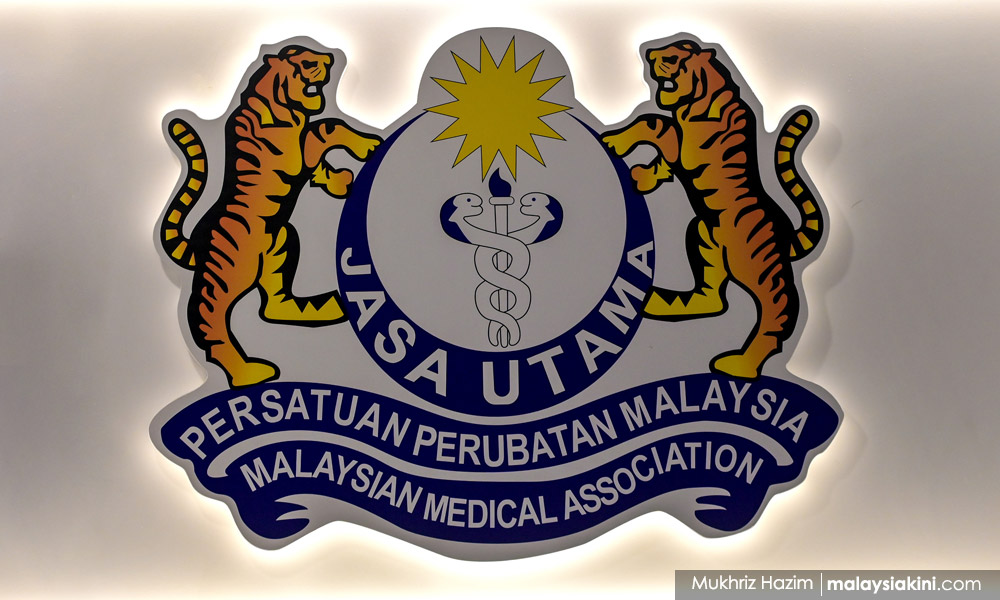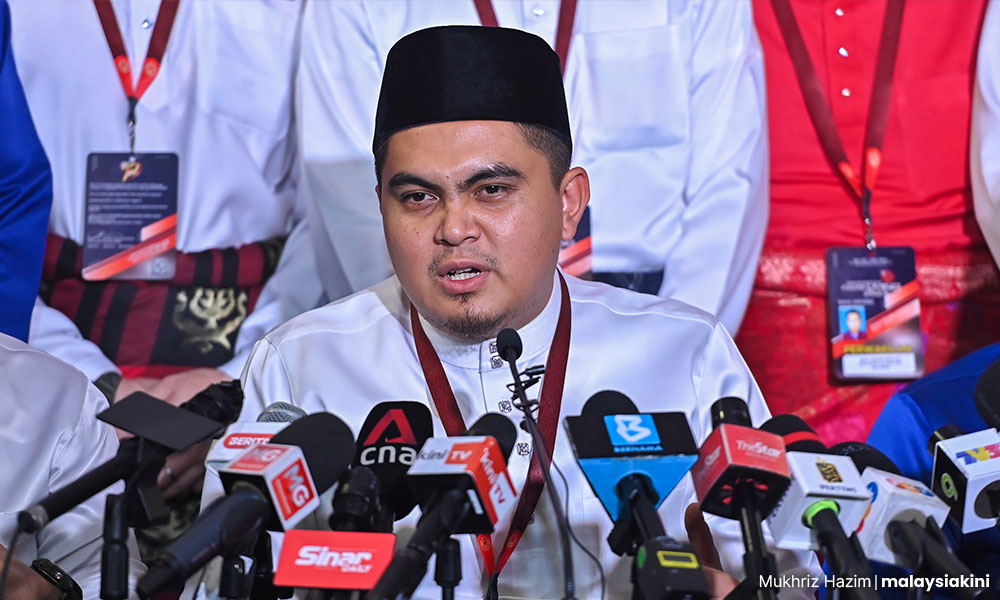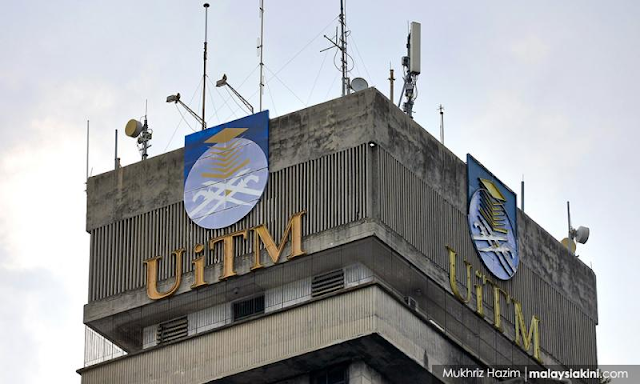While many university students around the globe are busy protesting against Israel for its extreme brutality against Palestinians, here we are exposed to a different scene.
In Malaysia, some Universiti Teknologi Mara (UiTM) students have been protesting against allowing non-bumiputera to enrol in its cardiothoracic surgery postgraduate programme.
In their recent demonstration the students wore black as part of a protest against the inclusion of non-bumiputera students.
As expected, Umno Youth chief Dr Muhamad Akmal Saleh has sided with UiTM students. He is of the view that UiTM must remain for bumiputera forever, pointing out there are other public universities open to non-bumiputera.
Given the racial contents of the issue, it has generated a big hoo-hah. It seems the issue may have all started off when Codeblue reported Raja Amin Raja Mokhtar- a board member of the UiTM-IJN (National Heart Institute) cardiothoracic surgery postgraduate programme - revealing that the varsity was agreeable to opening the course to non-bumiputera.
Truth be told, the statement by Raja Amin merely reaffirms the stand taken by the Malaysian Medical Association (MMA). MMA took a position that UiTM should allow entry of non-bumiputera Malaysians seeking specialised training in the cardiothoracic field, given that international students can also enrol in the university.

Anyway, the statement by Raja Amin was apparently met with a lukewarm response from the Madani government when Higher Education Minister Zambry Abdul Kadir said there had been no discussions on allowing the entry of non-bumiputera.
Prior to Raja Amin’s statement, it was reported that four graduates who earned a Fellowship of the Royal Colleges of Surgeons Edinburgh (FRSC Ed) qualification for cardiothoracic surgery were told they could not register as specialists and practise the speciality here because the Malaysian Medical Council (MMC) does not recognise the qualification.
At present, UiTM is the only varsity that offers a parallel pathway programme in collaboration with IJN in the cardiothoracic field, which comprises surgery and care for heart and lung diseases.
As far as the law is concerned, UiTM is governed by a specific legislation - the UiTM Act 1976 (Act 173). The act was enacted in 1976 to provide for the establishment, maintenance, and administration of UiTM.
Though UiTM is essentially a public university, it is - as was pointed out earlier - specifically governed by its own law, hence by virtue of Section 3A of Act 173, the Universities and University Colleges Act 1971 (Auku) shall not apply to the university. Hence, some say that its sui juris character should never be disturbed.
It goes without saying that the university was established pursuant to and in accordance with the provisions of Article 153 of the Federal Constitution. That is clearly spelt out in Section 1A of Act 173.
History of UiTM
Politically and historically speaking, the institution was a brainchild of the late Onn Jaafar - one of the founders and former president of Malay nationalist party Umno - after his visit to Ceylon (now Sri Lanka) in 1951 to learn about rural development programmes.
Nevertheless, in 1956, the institution was established as the Rural and Industrial Development Authority (Rida) Training Centre.
In 1965, it decided to change its name to Maktab Majlis Amanah Rakyat (Mara) — the government agency formed to aid and train bumiputera in business and industry.
And in 1967, it was renamed again to Institut Teknologi Mara (ITM or Mara Technological Institute). Only in 1999, it achieved its current university status.
Perhaps in taking sides with UiTM students, Akmal may still harbour some lingering sentimental value. After all, one may not simply ignore Umno’s historic contribution in establishing UiTM.

In rejecting the idea of the enrolment of non-bumiputera students, UiTM vice-chancellor Shahrin Sahib argues that the varsity is committed to upholding Act 173 and Article 153 of the Federal Constitution, which he maintains only allows the enrolment of bumiputera students.
He, however, states UiTM will accept whatever the government decides with the blessing of the Yang di-Pertuan Agong if the matter arises due to national need.
Lawyers for Liberty, on the contrary, argued that there is no provision in the law that prohibits the admission of non-bumiputera students into UiTM, particularly referring to Article 153 of the Federal Constitution.
Its director did not mince his words when he stated that since the early 1970s, successive governments and political leaders have consistently misinterpreted and abused the application of Article 153 for political gain at the expense of national unity, thus contributing to disadvantages for non-bumiputera which was not envisaged by Article 153.
I have no intention of descending into such an aforementioned legal mumbo jumbo. In my view, while the fear of some bumiputera students may be reasonably justified if the Madani government is agreeable to opening up UiTM to non-bumiputera, the fact remains that there are many poor children from non-bumiputera families who are academically qualified to study in UiTM but prevented from doing so due to the current policy of not admitting non-bumiputera students.
Be that as it may, I don’t see any problem for UiTM to revisit its current policy by opening to non-bumiputera students as long as the university would faithfully adhere to this important caveat - there must be some strict requirements for such an enrolment.
The enrolment for non-bumiputera must be strictly confined to those students who are proven to have come from poor and disadvantaged families, yet they are excellent in their academic achievement.
That, in my view, represents the true spirit of Madani. - Mkini
MOHAMED HANIPA MAIDIN is a former deputy minister of law.
The views expressed here are those of the author/contributor and do not necessarily represent the views of MMKtT.



No comments:
Post a Comment
Note: Only a member of this blog may post a comment.